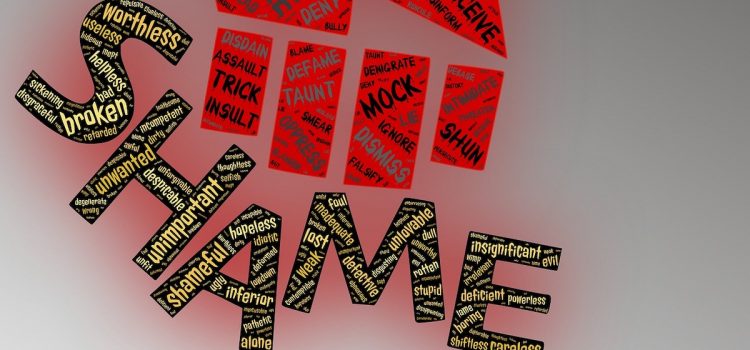

This article gives you a glimpse of what you can learn with Shortform. Shortform has the world’s best guides to 1000+ nonfiction books, plus other resources to help you accelerate your learning.
Want to learn faster and get smarter? Sign up for a free trial here .
How common is shame? How do we unwittingly give our shame more power? Since it’s not always possible to resist shame, what can be done about it?
Shame is the focus of much of Brené Brown’s work, from her research to her books and to her speeches. Her work on shame helps countless people deal with this common experience.
Continue reading for several Brené Brown shame quotes that capture the essence of her message.
Brené Brown Shame Quotes
We’ve organized 16 Brené Brown shame quotes into four categories: the meaning of shame, the pervasiveness of shame, the secrecy of shame, and shame resilience. We’ve added some context and explanation to help you understand where Brown is coming from. At the end of the article, you’ll find a list of books from which these Brené Brown shame quotes are taken from which you can learn more about Brown’s research into the topic.
Quotes About the Meaning of Shame
“Shame is the intensely painful feeling or experience of believing that we are flawed and therefore unworthy of love and belonging.”
“Shame is the fear of disconnection.”
“Shame is basically the fear of being unlovable.”
“Shame is the feeling you get when you believe that you’re not worthy of anyone caring about you or loving you. That you’re such a bad person that you can’t even blame other people for not caring about you.”
These Brené Brown shame quotes reflect a common theme. She defines shame as a toxic, excruciating feeling that occurs when something or someone makes us feel like we’re defective and unworthy of love and connection. Shame most often happens when we believe we’re being labeled with an identity that we don’t want to be associated with. For example, if you value being important, you might feel shame when another person outwits you because it makes you feel unimportant. Or, if you want to be seen as hardworking, you might experience shame when your boss suggests you spend more time on your work because you fear they think you’re a slacker.
Most experts agree with Brown’s definition of shame, but some argue that shame isn’t always toxic—sometimes, it can have positive effects. They call this kind of shame “healthy shame” and explain that it helps us survive by teaching us how to behave acceptably and fit in with our community. Rather than shame inevitably leading to fear, blame, and disconnection, they argue that healthy shame can have positive effects like self-correcting unhealthy behaviors, making amends with others, and personal growth. They call the shame Brown refers to—the kind that’s self-punishing and lingers after the negative experience—toxic shame.
Quotes About the Pervasiveness of Shame
“We all have it. Shame is universal and one of the most primitive human emotions that we experience. The only people who don’t experience shame lack the capacity for empathy and human connection.”
“People often want to believe that shame is reserved for the folks who have survived terrible traumas, but this is not true. Shame is something we all experience. … To feel shame is to be human.”
“There are studies that identify shame as the dominant emotion experienced by mental health clients, exceeding anger, fear, grief, and anxiety.”
“Faith communities and schools are not exempt from shame.”
In these Brené Brown shame quotes, she reminds us that everyone experiences shame at some point; it’s an innate part of being human. The last quote, about faith communities and schools, comes from the first shame research she and her colleagues conducted. They found that 85% of former students they interviewed had experienced shame in school that was so severe that it changed the way they saw themselves. Usually, the students were compared to other students in a negative way. Often, it was related to creative pursuits. They were told that they weren’t as good as a writer, a musician, etc. Brown believes that this shame left scars that stifled creativity and innovation.
Quotes About the Secrecy of Shame
“The less we talk about shame, the more control it has over our lives.”
“Shame derives its power from being unspeakable. That’s why it loves perfectionists—it’s so easy to keep us quiet. If we cultivate enough awareness about shame to name it and speak to it, we’ve basically cut it off at the knees. Shame hates having words wrapped around it. If we speak shame, it begins to wither. Just the way exposure to light was deadly for the gremlins, language and story bring light to shame and destroy it.”
“Shame hates it when we reach out and tell our story. It hates having words wrapped around it—it can’t survive being shared. Shame loves secrecy.”
“Shame loses power when it is spoken.”
Brown says we all carry shame—and we don’t like to talk about it. However, as indicated in these Brené Brown shame quotes, shame thrives in isolation. So, refusing to acknowledge our shame only gives it more power over us. Bringing shame out into the open allows us—and those we love—to confront it with empathy and compassion.
We connect with others by sharing experiences and establishing mutual support. This is crucial to combating shame because it facilitates the empathy element of connection, which helps you put courage and compassion into action. Further, once you learn how to express your own shame and ask for support, you’ll be better equipped to listen to others and provide them with support.
Research supports the idea that having social support systems is crucial to building resilience against negative experiences and emotions (like shame). Studies have even noted a link between social support and the neurocognitive systems and genetic mechanisms related to resilience. However, like Brown, Douglas Stone, Bruce Patton, and Sheila Heen explain that learning how to talk about our experiences and listen to others is crucial to ensuring that these connections have a positive effect. In Difficult Conversations, Stone, Patton, and Sheen explain that if we don’t share our feelings in a productive way and truly listen to others when they share theirs, we could end up misunderstanding each other, not getting what we need, and ultimately damaging our relationships.
Quotes About Shame Resilience
“The bad news is that shame resistance is not possible—as long as we care about connection, the fear of disconnection will always be a powerful force in our lives, and the pain caused by shame will always be real. But here’s the great news: Shame resilience is possible, teachable, and within reach for all of us.”
“The four elements of shame resilience: Name it. Talk about it. Own your story. Tell the story.”
“Shame resilience is the ability to practice authenticity when we experience shame, to move through the experience without sacrificing our values, and to come out on the other side of the shame experience with more courage, compassion, and connection than we had going into it. Ultimately, shame resilience is about moving from shame to empathy—the real antidote to shame.”
“Shame resilience is the ability to say, ‘This hurts. This is disappointing, maybe even devastating. But success and recognition and approval are not the values that drive me. My value is courage and I was just courageous. You can move on, shame.’”
Brown argues that the best way to overcome shame is to develop shame resilience. She conceives shame resilience as being able to identify shame as it occurs and move past it in a healthy way that protects your worthiness. But, how can we develop shame resilience? In these Brené Brown shame quotes and in her books, she is clear about the theory behind shame resilience and its ideal attributes, but she doesn’t give concrete actionables on how to develop it yourself. To put theory into practice, we’ve taken her discussions of shame and inferred four steps you can take to grow your shame resilience:
Step 1: Learn how shame manifests for you so that you can identify and address it. You may experience certain physical sensations when you feel shame, such as a dry mouth or a pounding heart. Or, shame may make you fall into certain thought patterns—for example, “I’m not good enough” or “I’m a bad person.”
Step 2: Identify and evaluate the root cause of your shame. Shame often comes from not meeting certain expectations. For instance, body shame may be triggered by non-conformity to societal beauty standards. To build shame resilience, consider whether these expectations are really valid or whether they’re unhealthy and unrealistic. Is not meeting these expectations really something to be ashamed of?
Step 3: Talk to someone trustworthy about your feelings of shame. If you refuse to talk about your shame, it will fester and consume you. However, its influence over you will diminish if you get the shame out of your mind and into the world, where you and others can address it.
Step 4: Avoid unhealthy reactions to shame. Research has shown that we frequently deal with shame in various unhealthy ways, such as distancing ourselves from others, working too hard to please others, and shaming others. None of these approaches to shame will help you to cultivate worthiness.
Wrapping Up
We hope you’ve been encouraged by learning that shame is both normal and manageable. If you’d like to dig deeper into the ideas behind these Brené Brown shame quotes, check out the following books.
In Atlas of the Heart, Brené Brown provides a guide to the many emotions and mental states that people feel. Brown says many people can only recognize and name three emotions: happiness, sadness, and anger. This lack of vocabulary blocks us from being able to fully experience and share our feelings with others.
Atlas of the Heart provides descriptions and explanations of 87 emotions, along with the situations where you’re likely to encounter them. With a deeper understanding of emotions, you’ll be able to talk about them more openly and accurately, and thus form deeper connections with the people around you.
Vulnerability is all too often engineered out of today’s work cultures, in a bid to make employees more efficient and less susceptible to emotions—but brave leaders who have the courage to allow vulnerability are essential to thriving work cultures. Dare to Lead breaks down the four courage-building skills that make up brave leadership, so that you can create an organization that takes risk, uncertainty, and failure in stride. You’ll learn how to lead your team in engaging with vulnerability, acting with integrity, having more productive and honest conversations, and moving on quickly from failure—skills that will allow your work culture to meet today’s ever-increasing innovative and creative demands.
Most of us want Wholehearted, meaningful lives. What stops us? In Daring Greatly, Brené Brown suggests that what holds us back the most is the widespread belief that vulnerability is a weakness. If you can embrace your vulnerability, you’ll find that it’s actually your greatest strength. In Daring Greatly, you’ll learn how to live a Wholehearted life and become a better leader, parent, and spouse in the process.
I Thought It Was Just Me (But It Isn’t)
We’ve all experienced situations that produce intense feelings of fear, blame, and disconnection and cause us to lash out at ourselves or others. Brené Brown explains that this intense feeling is called shame, and it’s a natural part of being human. However, allowing shame to control our thoughts, feelings, and behaviors wreaks major havoc on our health, happiness, and relationships. In I Thought It Was Just Me (But It Isn’t), Brown contends that to live a happy, empowered life—and help others to do the same—you must combat shame by practicing empathy toward yourself and others. You’ll learn what shame is, why it happens, how it impacts our lives, and the techniques and skills we can use to build empathy and combat shame.
Released in 2010, The Gifts of Imperfection is a New York Times bestseller by Brené Brown. The book explores the theory and practices behind “Wholehearted living”: a concept Brown devised after years of research into shame, vulnerability, and self-worth. According to Brown, living Wholeheartedly will help you to cultivate worthiness: the conviction that you are good enough as you are and that you deserve to be loved.
Many people don’t want to discuss shame or vulnerability. In fact, today, people are lonelier, more obese, and more addicted than ever before because they opt to distract or numb themselves rather than address their insecurities or shame.
In her lecture series, The Power of Vulnerability, Brené Brown breaks down the various aspects of shame, addresses the importance of vulnerability, and offers 10 practices that you can use to embrace vulnerability and start living a Wholehearted life.

Want to fast-track your learning? With Shortform, you’ll gain insights you won't find anywhere else .
Here's what you’ll get when you sign up for Shortform :
- Complicated ideas explained in simple and concise ways
- Smart analysis that connects what you’re reading to other key concepts
- Writing with zero fluff because we know how important your time is






